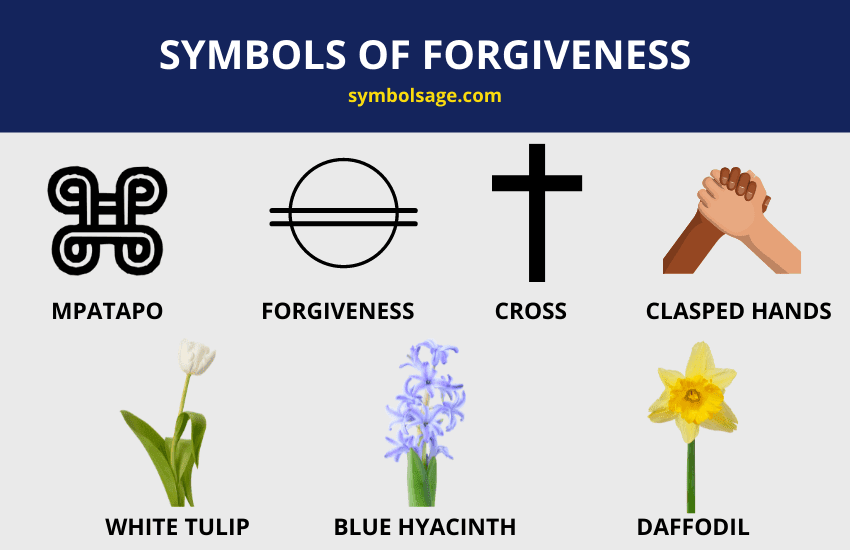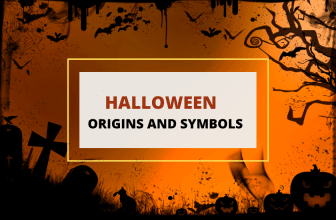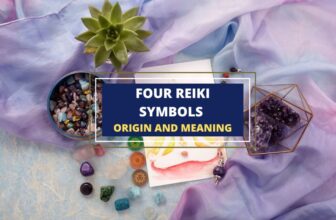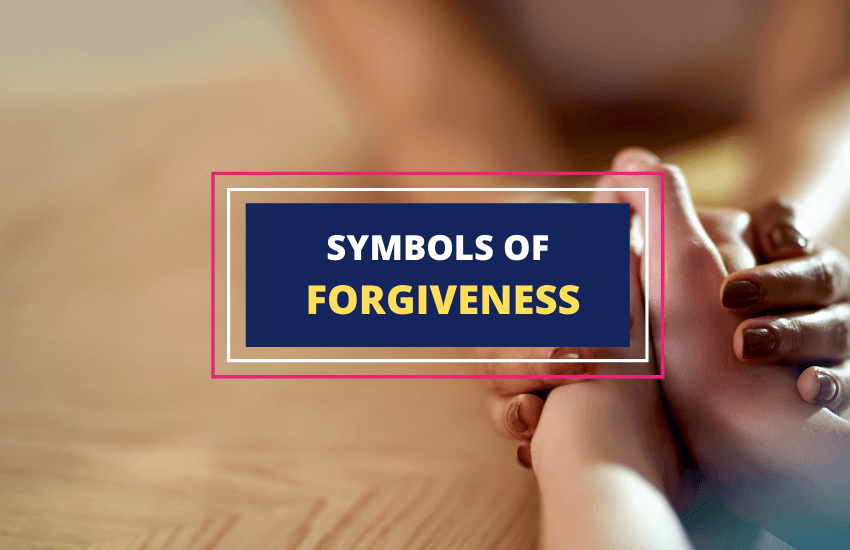
Table of Contents
As Lewis B. Smedes once said, to forgive is to set a prisoner free and discover that the prisoner was you. Forgiveness is often one of the most difficult things for a person to do, but it’s also one of the most important.
Forgiveness brings peace, allowing you to let go of anger and hurt, and move on with your life. In the same way, asking for forgiveness can be equally difficult but equally rewarding.
If you’re stuck in a rut, either because you’ve been hurt by someone or have hurt someone close to you, these symbols will serve as inspirations for forgiving and (if not forgetting) at least letting go.
Symbols That Represent forgiveness
1. Native American Forgiveness Symbol
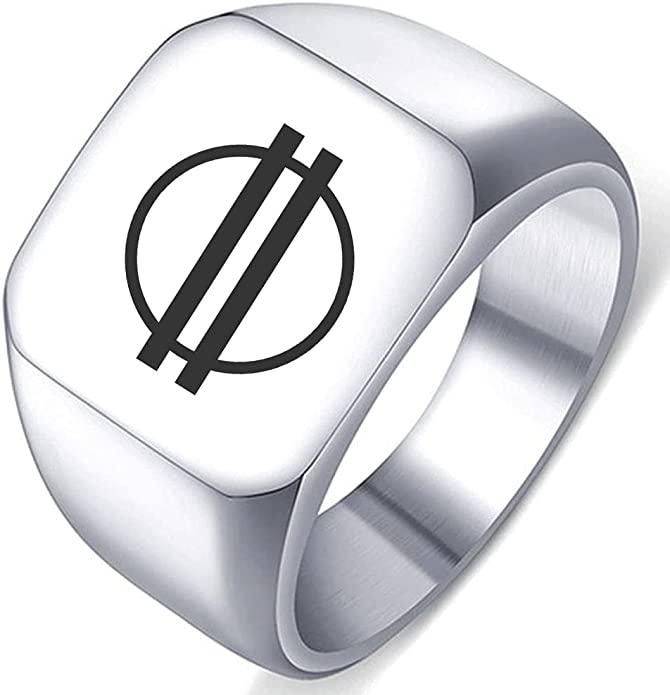
The forgiveness symbol is simplistic in its design. It features the outline of a circle, with two horizontal bars running through it and extending beyond the perimeter of the circle. This Native American symbol represents forgiveness, new beginnings, and letting go of the past.
2. The Cross

The Christian symbol of the cross is one of the most recognized symbols of forgiveness, within the Christian context.
It represents forgiveness, salvation, redemption, and Jesus’ victory over death and sin.
According to the Bible, Jesus’ death on the cross was needed in order to bring forgiveness to the world and wash away the sins of the people. However, this symbol is religious and most non-believers don’t tend to gravitate towards it.
3. Mpatapo – Knot of Reconciliation
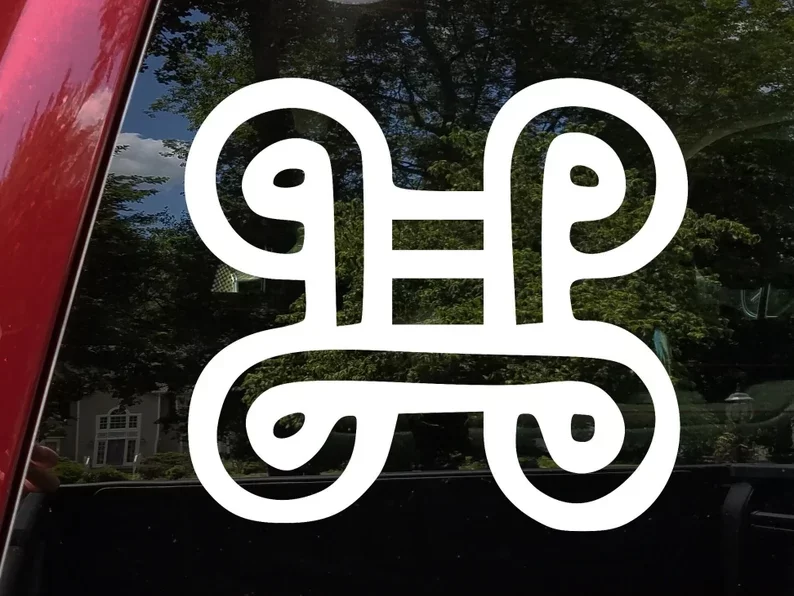
This Adinkra symbol features a square formed in one single stroke, with each edge looping over itself to continue the shape.
This tangled look represents the regrets, problems, and baggage people carry that messes their lives up, creating knots that they can’t seem to untangle.
Mpatapo represents reconciliation, hope, and peacemaking. It encourages you to engage with and address the issues that are holding you back, for only then can you go forward.
4. Clasped Hands
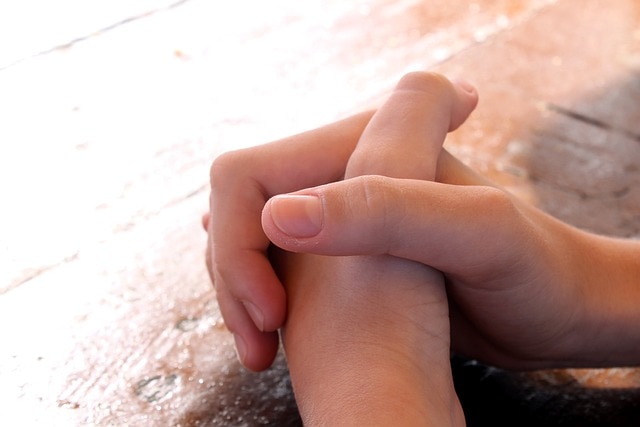
A symbol of forgiveness is that of two hands clasped together, requesting forgiveness for past sins. This comes from the act of pleading, whether religious or secular, which involves holding your hands together.
Therefore, this symbol represents the act of letting bygones be bygones, putting the past behind you, and making a commitment to friendship.
5. Olive Branch

A symbol of forgiveness, the olive branch represents mending relationships and forgetting the past. It’s also associated with peace and reconciliation. Offering an olive branch can be seen as an act of extending forgiveness or seeking forgiveness from others.
6. White Tulip

Because tulips come out in all their glory during springtime, after the coldness of winter, they represent new beginnings, optimism, and hope.
White tulips represent forgiveness, purity, tranquility, and the desire to mend fences and begin afresh. These flowers are perfect to give along with an apology.
7. Blue Hyacinth

One of the most beautiful flowers to look at, hyacinths feature clustering towers of fragrant, little bell-shaped flowers.
These flowers have several meanings based on their color, but the blue variety is often used to convey feelings of sorrow, regret, and a request for forgiveness.
The color blue represents honesty, trust, and truth, and by giving a bouquet of these blue blooms, you can seek forgiveness for telling an untruth and make a promise that it won’t happen again.
8. Daffodil
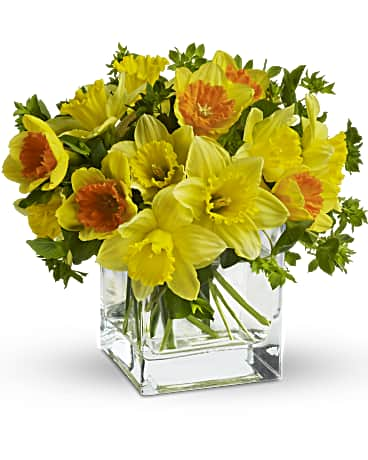
One of the most lauded flowers in English poetry, daffodils represent optimism, happiness, rebirth, and forgiveness.
Recognized by their trumpet-shaped blooms and bright, yellow color, daffodils are typically given in a bouquet as it’s believed that a single daffodil represents bad luck and sadness.
Daffodils convey the wish to start a new chapter and look forward to a more hopeful, optimistic future. They’re the perfect way to say I’m sorry.
9. White Flag
The white flag is an internationally recognized symbol of surrender, truce, and peaceful resolution. It signifies the willingness to let go of hostility, forgive, and seek peace.
7 Main Reasons to Forgive
You might have heard the Buddhist quote, holding onto anger is like drinking poison and hoping the other person dies. Letting go of resentment and anger is what it means to forgive. There are many benefits that come with forgiving someone. These can include:
1. Emotional Healing
Holding onto anger, resentment, or grudges can weigh heavily on one’s mental and emotional well-being. By forgiving, individuals can release negative emotions and find inner peace, allowing themselves to heal and move forward.
2. Letting Go of the Past
Forgiveness helps you to let go of the past and break free from its hold.
3. Restoring Broken Relationships
Forgiveness can be a catalyst for repairing damaged relationships.
4. Improved Physical Health
Research suggests that holding onto anger and resentment can have negative effects on physical health, leading to increased stress, higher blood pressure, and compromised immune system functioning. Choosing forgiveness may contribute to better overall health and well-being.
5. Personal Growth and Empowerment
Choosing to forgive can be an empowering act. It signifies strength and resilience, as it requires individuals to confront their pain and choose a path of compassion and understanding.
6. Freedom and Liberation
Forgiveness can provide a sense of freedom from the pain and bitterness of the past.
7. Breaking the Cycle of Hurt and Retaliation
Forgiveness can break the cycle of hurt and retaliation. It offers an opportunity to disrupt patterns of negativity and revenge, promoting a more positive and peaceful approach to resolving conflicts.
Wrapping Up
Symbols can have different meanings and interpretations across cultures and individuals. These symbols serve as visual representations of forgiveness and can inspire reflection, healing, and the desire for reconciliation.
Similar Articles:
22 Powerful Symbols of Kindness and What They Mean
Top 15 Powerful Symbols of Humility and Their Meanings
19 Profound Symbols of Gratitude and What They Mean
19 Powerful Symbols of Innocence and What They Mean
Top 15 Symbols of Purity and Their Meanings
15 Popular Symbols of Faith and Their Meanings
